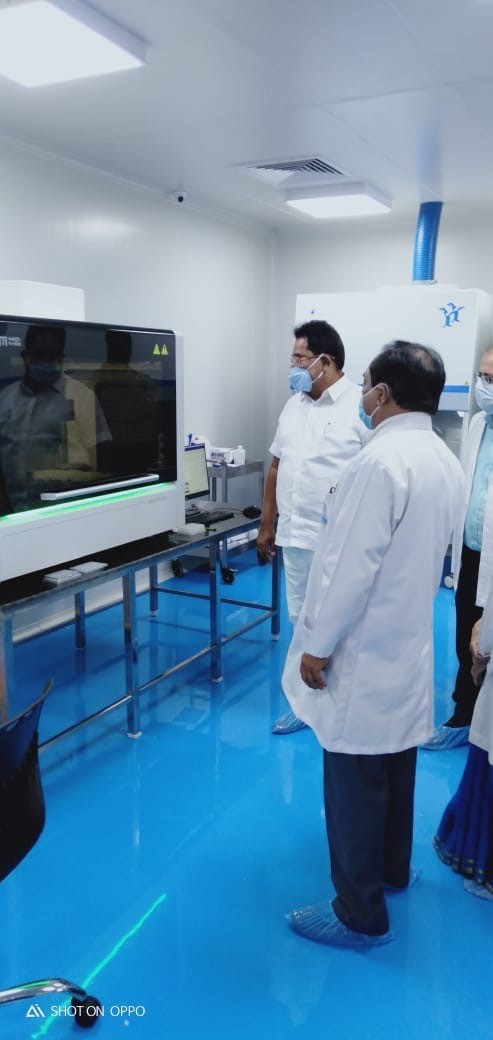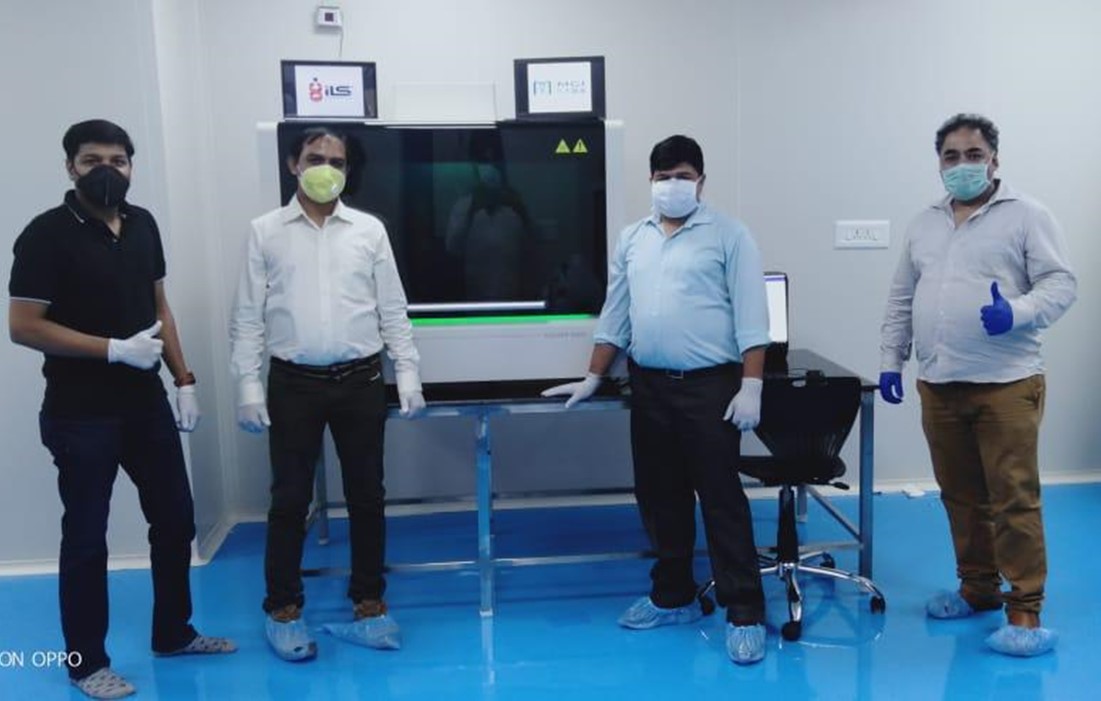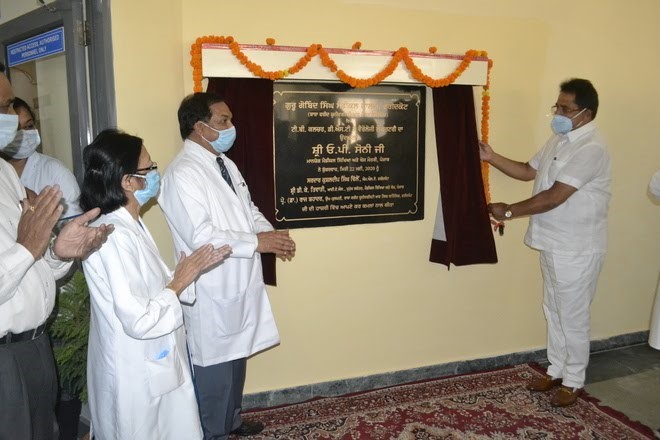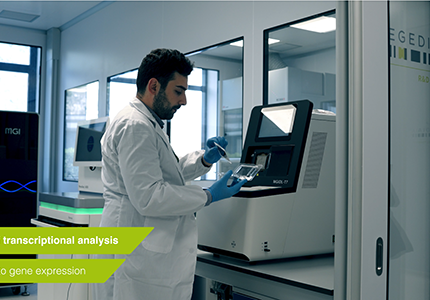MGI is proud to announce that its packages are being used for large-scale testing and sequencing for epidemic surveillance of COVID-19 in India.
ICMR (The Indian Council of Medical Research), the top body in India leading the response to the COVID-19 pandemic, has ordered nucleic acid extraction kits for more than one million RNA extractions from MGI. ICMR has also approved the import license for procurement of the MGI viral RNA extraction kits to India.
India’s Punjab state government has automated the process of RT-PRC testing for COVID-19 by using MGI's Automated Sample Preparation System MGISP-960. Several units of MGISP-960 have been procured to support expansion of RT-PCR testing to thousands of samples per day in Punjab state.
The official inauguration of the automated COVID-19 detection lab with MGISP-960 instruments was held May 22, along with the first installation, training and successful processing of approximately 800 samples at Baba Farid University of Health Sciences, Faridkot, Punjab.
“Having the experience of manual extraction for more than 2000 samples, MGISP-960 machine came as a panacea because there was urgent need to ramp up the testing capacity,” said Dr. Raj Bahadur, Vice Chancellor of Baba Farid University and advisor to Punjab state government. Automated extraction helps ensure safety of lab personnel, reduce working time, and simplify the procedure, he added. “There is high yield and quality of RNA, this system has reproducibility of results and minimal cross contamination. Most significant is that it reduces the requirement of manpower, which is very crucial in COVID-19.”
The MGISP-960 instruments will be also installed in Government Medical College in Patiala, as well as Government Medical College in Amritsar to improve the testing capability of Punjab State. In addition, it is being installed in another state, Madhya Pradesh, at the All India Institute of Medical Science in Bhopal to automate the COVID-19 testing.
Meanwhile, Indian scientists have started sequencing strains of the novel coronavirus genome isolated from patients in different parts of the country to look for signs of emerging mutations.
To facilitate tracking SARS-CoV-2 in the Indian population, a large sequencing project was started by the National Centre for Disease Control with the help of scientists from two premier research laboratories, the Centre for Cellular and Molecular Biology (CCMB), Hyderabad, and the Institute of Genomics and Integrative Biology (IGIB), New Delhi.
CCMB is using the NGS-based metagenomics package from MGI to trace the path of SARS-CoV-2 infection in the Indian population, including epidemic surveillance, virus traceability, and identification of novel mutations in SARS-CoV-2 from COVID-19 positive patients across India. MGI is providing NGS consumables to CCMB for this large scale genomics project.

Punjab Minister for Medical Education OP Soni watches the operationof MGISP-960 in the COVID-19 testing lab at Guru Gobind Singh MedicalCollege & Hospital in Faridkot
 MGISP-960 installed in BabaFarid University of Health Sciences, Faridkot, Punjab.
MGISP-960 installed in BabaFarid University of Health Sciences, Faridkot, Punjab.

The inauguration of the automated COVID-19 detection lab at Baba Farid University of Health Sciences, Faridkot, Punjab



 Sequencer Products: SEQ ALL
Sequencer Products: SEQ ALL














 Technologies
Technologies Applications
Applications Online Resources
Online Resources Data Bulletins
Data Bulletins Service & Support
Service & Support Introduction
Introduction Newsroom
Newsroom Doing Business With Us
Doing Business With Us Creative Club
Creative Club













